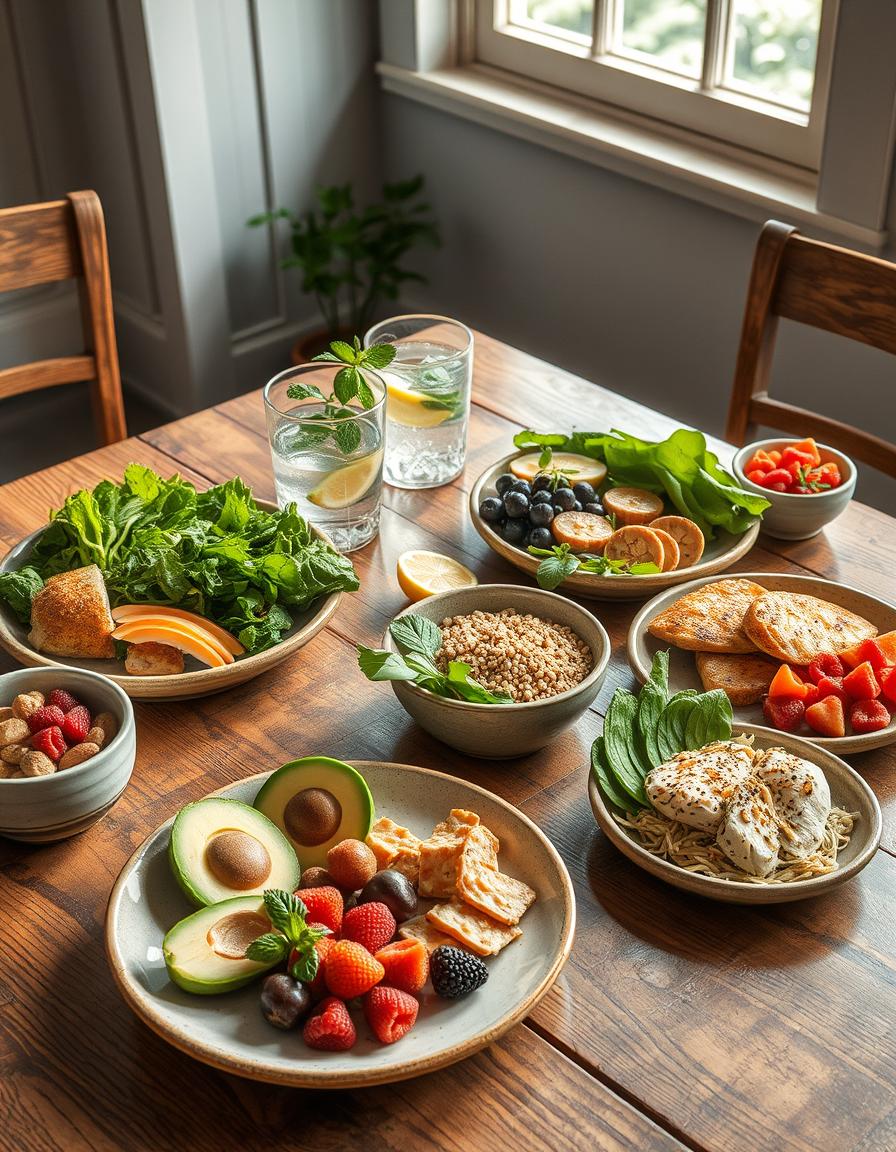Balancing hormones is key to feeling your best, full of energy, and maintaining good health. A lean hormone-balancing diet can help you achieve this by focusing on foods that support your body’s natural hormone production without adding unnecessary weight or inflammation. When hormones are in harmony, many aspects of wellness, from mood to metabolism, improve noticeably. The great news is that with simple food choices and smart habits, you can support your body’s hormone balance every day.
Understanding Hormones and Their Impact
Hormones are like tiny messengers in your body. They travel through your bloodstream and tell organs what to do. Hormones affect everything—how you feel, how you grow, how you sleep, and even how you digest food. When these messengers get out of sync, you might notice fatigue, mood swings, weight changes, or trouble sleeping.
Eating a lean hormones balancing diet means choosing foods that help keep these messengers happy and working well. It’s about fueling your body with nutrients that support hormone production and regulation. Think of it as giving your body the right ingredients to bake the best hormone “cake” possible!
Key Components of a Lean Hormones Balancing Diet
Healthy Fats
Fats often get a bad rap, but healthy fats are vital for creating hormones. Hormones like estrogen and testosterone are made from cholesterol, which comes from fat. The trick is choosing the right kinds of fats. Include sources such as:
- Avocados
- Olive oil
- Nuts and seeds (almonds, walnuts, flaxseeds)
- Fatty fish (salmon, mackerel, sardines)
These fats can also reduce inflammation and support brain function, which plays a big role in hormone balance.
Protein That Supports Hormones
Protein is the building block for many hormones and enzymes in the body. Eating enough protein helps keep your energy stable and your muscles strong. Good sources include:
- Lean meats like chicken and turkey
- Eggs
- Legumes (beans, lentils)
- Greek yogurt and cottage cheese
Try to include protein in every meal to keep your hormones steady and hunger in check.
Fiber-Rich Foods
Fiber is a superstar when it comes to hormone health. It helps your body eliminate excess hormones and keeps your gut happy. The gut is where many hormones are produced or regulated, so fiber-rich foods like:
- Vegetables (broccoli, spinach, carrots)
- Fruits (berries, apples, oranges)
- Whole grains (quinoa, brown rice, oats)
- Nuts and seeds
Make sure you drink plenty of water to help fiber do its job smoothly.
Foods to Limit or Avoid
Some foods can disrupt hormone balance by increasing inflammation or causing blood sugar spikes. Keeping these foods minimal can make a big difference in how you feel:
| Foods to Limit | Why |
|---|---|
| Refined sugars and sweets | Spike insulin and cause inflammation |
| Processed and fried foods | Contain trans fats that interfere with hormone function |
| Excess caffeine and alcohol | Can disrupt cortisol and estrogen levels |
| Excessive red meat or high-fat dairy | May increase inflammation if consumed in large amounts |
Remember, enjoying treats occasionally is part of a balanced lifestyle, but moderation is key.
Simple Habits to Support Your Diet
Stay Active
Exercise helps regulate hormones like insulin and cortisol. You don’t need to run marathons—walking, swimming, or yoga can do wonders. In fact, a refreshing dip can help reset your hormones. For those interested, Sea Level Swim offers gentle swimming options that support wellness through movement.
Sleep Well
Sleep is when your body repairs itself and balances hormones such as melatonin and growth hormone. Aim for 7–9 hours of quality sleep each night. Good sleep habits include a dark, cool room and a consistent bedtime.
Manage Stress
Stress causes cortisol levels to rise, which can throw off other hormones. Try relaxation techniques like deep breathing, meditation, or spending time in nature to keep your stress in check.
Sample Lean Hormones Balancing Diet Plan
| Meal | Foods Included |
|---|---|
| Breakfast | Greek yogurt with berries, chia seeds, and a drizzle of honey |
| Mid-Morning Snack | Handful of almonds and an apple |
| Lunch | Grilled salmon salad with mixed greens, avocado, olive oil, and lemon dressing |
| Afternoon Snack | Carrot sticks with hummus |
| Dinner | Quinoa bowl with roasted vegetables and lean chicken breast |
| Evening | Herbal tea and a few walnuts |
This plan is balanced with good fats, proteins, and fiber to support hormone health and keep you feeling satisfied and energized.
Conclusion
A lean hormones balancing diet is a smart way to support your body’s natural rhythm and maintain wellness. By focusing on nutrient-rich foods, healthy fats, and lean proteins while limiting processed and sugary foods, you’ll provide your body with the resources it needs to produce and balance hormones effectively. Pairing this diet with movement, stress management, and good sleep creates a powerful foundation for feeling your best.
Remember, small changes over time can lead to big results. Treat your body kindly, listen to what it needs, and enjoy the journey toward balanced hormones and better health.

Hardik is the visionary founder and driving force behind Leanry.com, a platform committed to empowering individuals through reliable health information, wellness tips, and actionable content for a healthier lifestyle.

